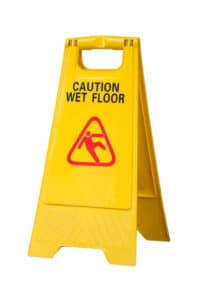When a minor under the age of 18 receives money or other property of value, the court has to approve the settlement of the minor’s claim to either receive money or a property of value. Parents and legal guardians of the minor maintain the right to enter a settlement on behalf of their children in Nevada cases. The Nevada Revised Statute 41.200 addresses minor’s compromises.
What Is a Compromise for a Minor’s Settlements?
The compromise of a claim made by someone under the age of 18 refers to the settlement of a disputed claim for money on behalf of the minor. An example would be medical bills resulting from a traumatic injury due to playing sports, or compensatory damages from injuries originated from a car accident. The Nevada Law provides certain types of agreements to become legally binding as long as they were approved by court because a minor cannot legally represent themselves in court. The role of the court is to protect the minor and ensure the settlement is proven by evidence. Additionally, the court must ensure all appropriate medical bills are paid, liens are resolved, and the money is stored away for the minor until he/she turns 18. Depending on the situation, the court may issue the minor access to the money in order to pay important medical bills.
The Procedure Comprising an Underage Claim
When involved in an underage settlement, the minor’s claim must be approved by the court in the county where the minor resides, or if the minor lives outside of Nevada, wherever the incident took place in Nevada. The court must sign and approve a written petition in order of the compromise to take place and the minor to receive compensation. Within the petition, all relevant medical and health care records must be shown in order to receive compensation for the bills. The documents must show the injury, treatment of the injury, and details of medical expenses such as who paid for it, the price of treatment, and if there is potentially any future expenses. If the district court officially approves the compromise of the minor’s claim, the court must either direct the money to the parents or legal guardians of the minor, with or without a bond.
Blocked Trust
After the procedure of compromising the minor’s claim, the parent or legal guardian that received the funds must set up a blocked financial investment account for the benefit of the minor. A blocked financial investment account consists of a savings account, a certificate of deposit, a United States savings bond, variable or fixed annuity contract, or any other trusted investment that has been approved by the court. If the balance of the investment is over $10,000, the Nevada Law requires the parent, legal guardian, or whomever is in charge of the investment to annually file a report with the account activity from the previous year. If the balance of the investment is less than $10,000, the court is entitled to ask for periodic reports of the account activity. It is important that whoever is in charge of the investment account is informed about the rules and regulations behind the investment account. Following these rules will ensure that the minor will receive the money when they turn 18, or that it will be used for necessary bills.
Respecting and following NRS 41.200 regarding underage settlements allows the defendant and insurance company to know that the incident has been resolved and the settlement has come to an end. This is the most clear way to avoid potential issues that could appear in the future. If you or a loved one is a minor who has been injured and looking for compensation, Richard Harris Personal Injury Law Firm has attorneys with years of experience involved in cases including underage settlements. Our attorneys will aggressively work the case and ensure that you receive compensation and the money is stored away in a blocked financial investment account until you turn 18.





























